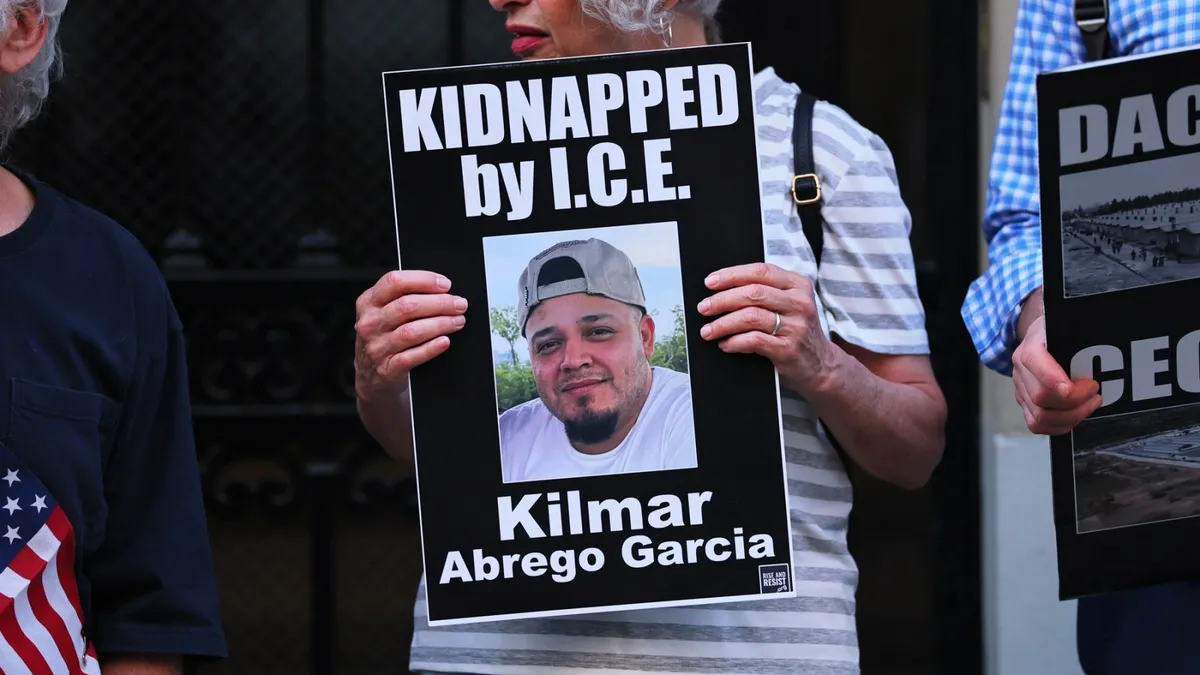
The Trump administration is once again preparing to deport Kilmar Abrego Garcia, as their efforts to criminally prosecute him for alleged offenses have faltered in court. During a recent hearing in Maryland, where Abrego Garcia resides, the Justice Department revealed plans to have him arrested by Immigration and Customs Enforcement (ICE) once he is released from federal custody on bail, as ordered by a judge.
During the Thursday hearing, DOJ attorney Jonathan Guynn informed the court that the government intends to initiate the deportation process for Abrego Garcia to a third-party nation, distinctly not El Salvador, his birthplace. This decision comes in light of a judge's previous ruling that barred his deportation to El Salvador due to significant safety concerns.
The recent ruling by the Supreme Court has granted the Trump administration the authority to deport individuals to countries other than their country of origin, including nations like Libya and South Sudan, often with minimal notice. This has raised questions about where the administration might attempt to relocate Abrego Garcia.
The Trump administration's claims that Abrego Garcia is a dangerous criminal appear to be a facade, masking the fact that he was deported in a manner deemed illegal by the Supreme Court, which ordered his return. This situation reflects a troubling pattern of political maneuvering at the expense of an individual and his family.
In a recent court decision, U.S. Magistrate Barbara D. Holmes ordered the release of Abrego Garcia on bail, dismantling the government's allegations against him. Holmes highlighted that the accusations, particularly that he was involved in human smuggling and affiliated with the violent gang MS-13, were largely based on unreliable hearsay from questionable witnesses and unsubstantiated innuendo.
Holmes emphasized that the government could not rely solely on the reputation of a street gang to justify Abrego Garcia's detention. She stated, “The government’s evidence of Abrego’s alleged gang membership is simply insufficient.” Despite acknowledging the government's failure to prove reasonable cause for his detention, Holmes pointed out that Abrego Garcia would likely face immediate re-arrest by ICE.
She underscored that the right to due process is a fundamental principle of the criminal justice system, noting that it is essential for the administration of justice. However, it appears that the government does not plan to bring Abrego Garcia to trial. Instead, Trump officials seem poised to expedite his deportation to another country, potentially preventing him from addressing the abuses he has endured at their hands.
The situation surrounding Kilmar Abrego Garcia remains fluid and contentious. As deportation plans move forward, the implications for his safety and legal rights are significant. The actions of the Trump administration raise critical questions about due process and the treatment of individuals within the immigration system.